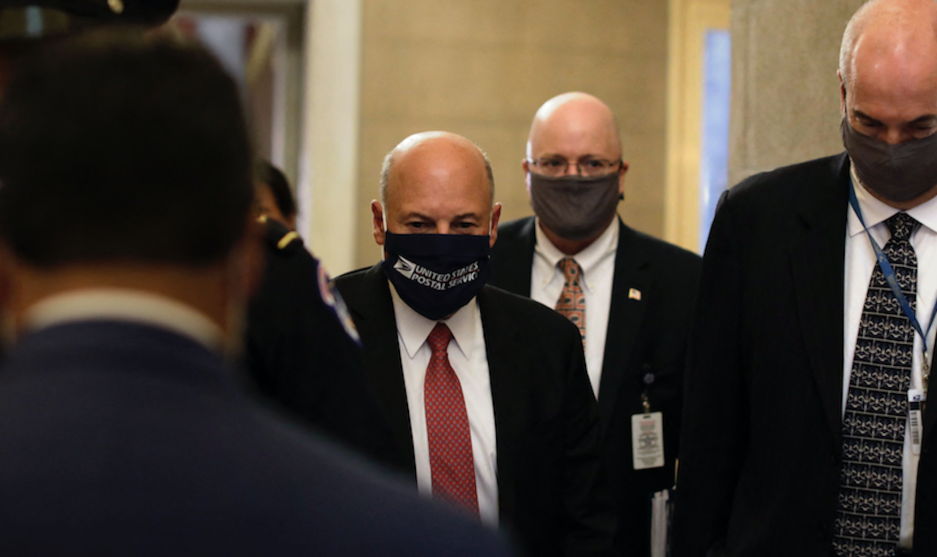
Carolyn Kaster/AP
Amid allegations that the Trump administration is sabotaging United States Postal Service ahead of the November election, postmaster general Louis DeJoy announced Tuesday that he was suspending some of the recent controversial changes that have likely contributed to significant postal delays around the country.
“To avoid even the appearance of any impact on election mail, I am suspending these initiatives until after the election is concluded,” DeJoy said in a statement.
According to DeJoy, the suspensions will apply to maintaining consistent retail hours, keeping mail processing equipment and blue collection boxes where they currently are, and preventing the future closures of mail processing facilities. But critics questioned its failure to address other agency changes that have likely contributed to the widespread mail delivery delays. Those include the directive for workers to leave late-arriving mail for the following day and the move to end the Postal Service’s longstanding practice of treating election mail with priority, no matter the postage rate—two changes election advocates warn could significantly disrupt mail-in voting. (For a look at how the agency’s changes have already disrupted mailing in Michigan, a key battleground state, read my colleague AJ Vicens’ report here.) It also wasn’t clear whether the agency would replace the blue collection boxes that have been already been removed.
In his statement, DeJoy addressed the sudden prohibition on overtime pay but was curiously vague. “We reassert that overtime has, and will continue to be, approved as needed,” he said while declining to outline the criteria for such approval.
The statement comes ahead of two congressional appearances that DeJoy, a Trump megadonor who was appointed to the position in May, will make over the next week amid intense bi-partisan criticism over the proposed changes, not to mention the president’s admission that he hopes to block congressional funding for the agency because he believes it will help boost his reelection chances.

















